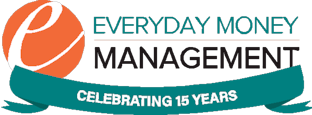Are You a Financial Caregiver
What it means to be a Financial Caregiver
Do you help a parent, family member or friend with any of these tasks:
Sorting through their mail
Paying their bills
Piling their papers
Making phone calls to service providers
Looking over bank, credit card, and investment statements to make sure there is no fraud or unnecessary recurring charges
Filling out their tax organizer and organizing their documents at tax time
Managing their cash flow so they have sufficient funds to cover their expenses
Submitting medical claims
Helping them make good decisions on small and large purchases
If so, then you are fulfilling the role of a financial caregiver. This role is an important part of protecting your loved ones’ finances, but it can be daunting, time consuming, and overwhelming.
Whether you are a new financial caregiver or simply want to make sure you have all your ducks in a row, use these tips from our daily money managers to keep things running smoothly:
Review legal documents such as wills, trusts, and powers of attorney (POA) and note how old they are. If they are more than five years old, were drafted out of state, or if circumstances have changed (such as a death, birth, or divorce in the family), consider getting those documents updated.
Get a financial power of attorney document (POA) on file at their financial institutions to avoid complications when your loved one can no longer act independently.
Set up a separate email account for your loved one for their bills and banking notifications that you can monitor. Set up the two-factor authentication required at most banks and other websites using this email address and/or your cell phone number. This allows easy access to this information and removes difficulties with signing in and resetting passwords.
Create one document that lists their most important information, such as: ·
who are their most important contacts and service providers
insurance information (car, home, health)
assets, liabilities, sources of income, and expenses
memberships and subscriptions
who has the safe deposit key and where is it kept
Our Whole Life List is designed to help you compile this information.
Monitor their bank and credit card statements for evidence of fraud. Set up a credit monitoring service, or pull their credit report annually. It may also be helpful to establish a credit freeze at all three major credit reporting agencies.
Discuss their wishes for end of life arrangements, including living wills, what happens to their remains, and whether pre-paying funeral expenses is desirable.
If you find yourself struggling with the responsibility of being a financial caregiver, we at Everyday Money Management can help. Give us a call at 301-801-2294 or send us a message.

